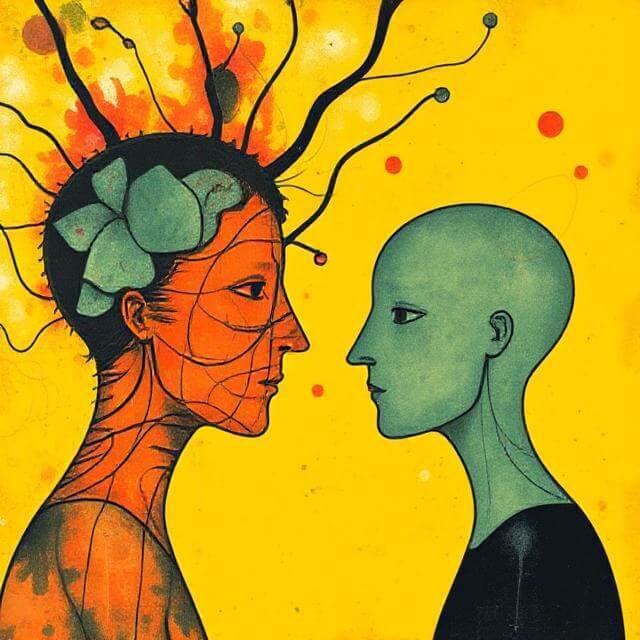Dealing with Toxic People: Strategies for Protecting Your Mental Health
Pubished By Learn Sufficient Notes
Table of Contents
- Introduction
- What Does It Mean to Be Toxic?
- How Toxic People Affect Mental and Emotional Health
- 10 Common Traits of Toxic Individuals
- Types of Toxic People You May Encounter
- Why Do People Become Toxic?
- 12 Powerful Strategies to Deal with Toxic People
- Psychological Techniques to Build Resilience
- Dealing with Toxic People at Work
- Coping with Toxic Family Members
- Managing Toxic Romantic Relationships
- When to Walk Away
- The Role of Therapy and Support
- Rebuilding Yourself After a Toxic Relationship
- Conclusion
- FAQs
1. Introduction
Toxic people are everywhere—at school, at work, in your family, and sometimes even among your closest friends. These individuals create stress, confusion, and conflict in your life, often without you realizing how deeply they’ve affected you until much later.
The ability to identify and deal with toxic people is not just a personal development skill—it’s a survival tool in today’s emotionally complex world. Whether you’re preparing for a highly competitive exam or building your career, knowing how to guard your energy is crucial.
In this extensive guide, we will help you understand what toxic behavior looks like, why it’s harmful, and how you can protect yourself with psychological strength and strategic action.
2. What Does It Mean to Be Toxic?
The term “toxic” is often used casually, but in the psychological sense, it refers to people who consistently behave in a way that harms others emotionally, mentally, or even physically. A toxic person thrives on control, chaos, and criticism. They leave you feeling drained, belittled, or anxious.
A person is not toxic because of one bad day—they are toxic because their harmful behavior is repetitive and consistent.
3. How Toxic People Affect Mental and Emotional Health
Dealing with toxic individuals is more than unpleasant—it can be dangerous to your mental health. Here’s how:
- Increased anxiety and depression: Their behavior can make you question your self-worth.
- Emotional exhaustion: Constantly managing their moods or reactions can be draining.
- Distorted self-perception: Gaslighting and manipulation can make you doubt your own reality.
- Procrastination and performance decline: If the toxic person is in your study or work circle, it can impact your focus.
Chronic exposure to toxic people can lead to mental fatigue, burnout, and even symptoms of PTSD in severe cases.
4. 10 Common Traits of Toxic Individuals
Recognizing the signs is the first step toward protecting yourself. Toxic people typically show these traits:
- Manipulative behavior
- Constant criticism
- Blame-shifting
- Passive-aggressiveness
- Jealousy or competitiveness
- Disrespecting boundaries
- Negative worldview
- Victim mentality
- Chronic lying
- Control issues
If someone in your life shows multiple traits regularly, you may be dealing with a toxic individual.
You also can Learn To Start Your Business With Us- Learn Sufficient Notes Business World
5. Types of Toxic People You May Encounter
Not all toxic individuals behave the same way. Understanding different types helps you respond effectively.
- The Narcissist: Self-centered, lacks empathy, craves admiration.
- The Drama Magnet: Constantly in crisis, thrives on chaos.
- The Controller: Needs to dominate everything and everyone.
- The Criticizer: Never has a kind word; always points out flaws.
- The Victim: Blames the world, never takes responsibility.
- The Gaslighter: Twists facts, makes you question your reality.
Each type requires a unique strategy, which we’ll cover in the next sections.
6. Why Do People Become Toxic?
Understanding the why behind toxicity helps depersonalize their behavior:
- Childhood trauma: Many toxic people were raised in dysfunctional homes.
- Insecurity: They hurt others to mask their own inadequacies.
- Mental health issues: Conditions like narcissistic personality disorder may contribute.
- Poor role models: Toxic behavior can be learned and normalized in certain environments.
This doesn’t excuse their actions—but it explains them, helping you protect your peace without guilt.
7. 12 Powerful Strategies to Deal with Toxic People

Let’s get practical. Here are proven techniques to deal with toxic individuals:
1. Set and Enforce Boundaries
Be clear about what is acceptable. Say things like, “I don’t accept being spoken to like that.”
2. Use the Grey Rock Method
Be uninteresting and emotionally neutral. This method is useful when you can’t avoid contact.
3. Don’t Engage in Their Drama
Avoid being pulled into arguments. Stay calm and walk away if needed.
4. Document Everything
Especially for workplace toxicity—keep a record of incidents in case you need to report.
5. Don’t Try to Change Them
Focus on your own responses. Toxic people rarely change unless they seek help.
6. Stay Calm and Rational
Maintain emotional control. Reacting emotionally gives them power.
7. Limit Access
Reduce how much of your time, energy, and personal life you share with them.
8. Focus on Self-Care
Detox mentally by doing things that bring you peace—journaling, meditation, or nature walks.
9. Seek Validation Elsewhere
Toxic people thrive on making you doubt yourself. Seek support from trusted, emotionally healthy people.
10. Use Assertive Communication
State your needs directly and respectfully. Don’t apologize for having boundaries.
11. Practice Emotional Detachment
Don’t let their behavior define your self-worth. Learn to detach without being cold.
12. Walk Away When Necessary
Sometimes the only solution is to cut ties completely. Your peace is more important than maintaining a toxic connection.
8. Psychological Techniques to Build Resilience
You can’t always control your environment, but you can train your mind to stay resilient.
- Cognitive Reframing: Learn to see toxic behavior as a reflection of them, not you.
- Mindfulness: Stay grounded in the present and avoid overthinking their actions.
- Affirmations: Repeat positive affirmations to reinforce self-worth.
- Therapeutic Journaling: Express your thoughts and track your growth.
9. Dealing with Toxic People at Work
Workplace toxicity can be hard to escape. Here’s how to manage it:
- Document interactions
- Stay professional and avoid gossip
- Report to HR if necessary
- Create emotional boundaries—even in open-plan offices
- Focus on your own goals and performance
If the workplace becomes emotionally unsafe, consider transferring departments or switching jobs.
10. Coping with Toxic Family Members
Family-related toxicity is complex due to emotional ties and social expectations.
- Set time limits for visits
- Don’t try to fix them
- Set communication boundaries (e.g., no calls after 9 PM)
- Focus on the family members who uplift you
- Consider family counseling if others are willing
11. Managing Toxic Romantic Relationships
Romantic toxicity often includes manipulation, gaslighting, and emotional abuse. It’s particularly dangerous because of the emotional dependency involved.
Steps to Take:
- Recognize patterns (love bombing, control, isolation)
- Communicate your needs clearly
- Seek support from friends or professionals
- Make a safety plan if abuse is present
- Know when to leave, even if it’s painful
Remember: Love should not hurt your self-worth.
12. When to Walk Away
You don’t need permission to cut off toxic people. If someone constantly:
- Violates your boundaries
- Disrespects your feelings
- Makes you feel unsafe or unworthy
- Hinders your growth
…it’s time to walk away.
Distance is not cruelty—it’s self-preservation.
13. The Role of Therapy and Support
You don’t have to navigate toxicity alone. A licensed therapist can help you:
- Process emotional damage
- Rebuild self-esteem
- Develop coping mechanisms
- Create a long-term strategy for emotional wellness
Group therapy or support communities can also provide healing spaces.
14. Rebuilding Yourself After a Toxic Relationship
Leaving is not the end—it’s the beginning of healing. Here’s how to rebuild:
- Re-establish your identity: Do things that define you, not your relationship.
- Reconnect with your passions: What did you love before they took up your time and energy?
- Develop new goals: Shift your focus to your ambitions and long-term happiness.
- Invest in self-growth: Read, study, learn. Level up mentally and emotionally.
- Practice forgiveness—not for them, but for your peace.
15. Conclusion
Dealing with toxic people is one of the hardest yet most empowering things you’ll ever do. It takes courage, self-respect, and consistency. Whether you’re preparing for an exam, building a career, or healing from emotional damage, eliminating toxic influences clears your path and strengthens your mind.
You are not responsible for others’ behavior, but you are responsible for protecting your peace. Set your boundaries, enforce them, and watch your life transform.
16. FAQs
Q1. Can a toxic person change?
Yes, but only if they acknowledge their behavior and commit to real change, often with professional help. However, you shouldn’t wait around for it.
Q2. Is it okay to cut off family?
Absolutely. Blood relations don’t give anyone the right to mistreat you.
Q3. How can I deal with toxic friends in a study group?
Set strict time and topic boundaries. If they continue to sabotage or distract, find another group.
Q4. What if I can’t avoid the toxic person?
Use techniques like the Grey Rock Method and practice emotional detachment. Focus on what you can control.
Q5. How do I heal after cutting off a toxic person?
Give yourself time, seek therapy, and focus on self-growth. Healing is not linear—but it is possible.





